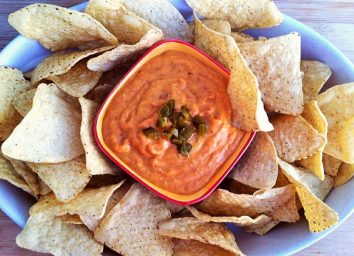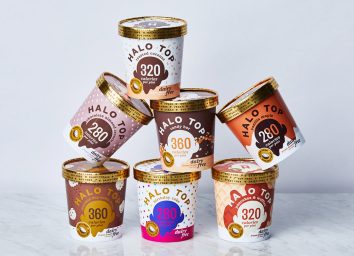What’s the Difference Between Lactose-Free and Dairy-Free?

You may think products that are lactose-free and dairy-free are the same thing, but they’re actually completely different. This is important to know for those with diet restrictions so that they don’t accidentally eat something that their body doesn’t respond well to.
To uncover the difference between the two terms, we consulted Amanda Blechman, a registered dietitian and senior manager of scientific affairs at Danone North America. Here’s what she had to say about the lactose-free vs. dairy-free debate.
What does it mean when a product says it’s dairy-free?
“Dairy-free means that a product does not contain milk or ingredients derived from milk,” says Blechman. For example, think of a plant-based yogurt or an alternative to milk such as oat milk.
Products that are dairy-free typically don’t contain as much protein as the dairy variety would because milk is naturally high in protein. Just one 8-ounce glass has roughly 8 grams of protein. For comparison, an 8-ounce glass of Silk Almond Milk only contains one gram of protein. People who are following a vegan lifestyle or who just don’t like the taste of milk opt for dairy-free products. Blechman offers some insight on how these dairy-free items differ from their dairy counterparts.
“While there are many dairy-free alternatives available, people considering dairy-free alternatives should look at the label to make sure they are getting the nutrients they are looking for,” she says. “For example, calcium and vitamin D are two extremely important nutrients often found in dairy products. Now, many dairy alternatives are also fortified with these nutrients as well to help consumers better meet their recommended daily intake levels while sticking to their dietary preferences.”
What does it mean when a product says it’s lactose-free?
“Lactose is the main source of naturally occurring sugar in milk and other dairy products,” Blechman says. “People who have lactose intolerance are not able to digest lactose well.”
In other words, when someone says they have a lactose intolerance, this does not mean they have an allergy to milk. Products that are lactose-free still have dairy in them, but without milk’s sugar, lactose. Lactose is either removed by adding the enzyme lactase to milk or by using an ultrafiltration technique.
“Some dairy products contain less lactose than others, such as yogurt, in which most of the lactose is converted into lactase by the yogurt cultures,” Blechman says. So those who are lactose-free but still like to reap the protein benefits from a dairy-based yogurt can indulge without having to worry about experiencing adverse reactions.
However, people who have a milk allergy should not consume lactose-free products at all, and they should stick to dairy-free products.
“While people who experience intolerance to lactose may enjoy these products, the FDA makes it clear that this label does not protect a person who is allergic to dairy products,” says Blechman. “If someone is looking to avoid dairy, they should look for products that are specifically labeled dairy-free.”







